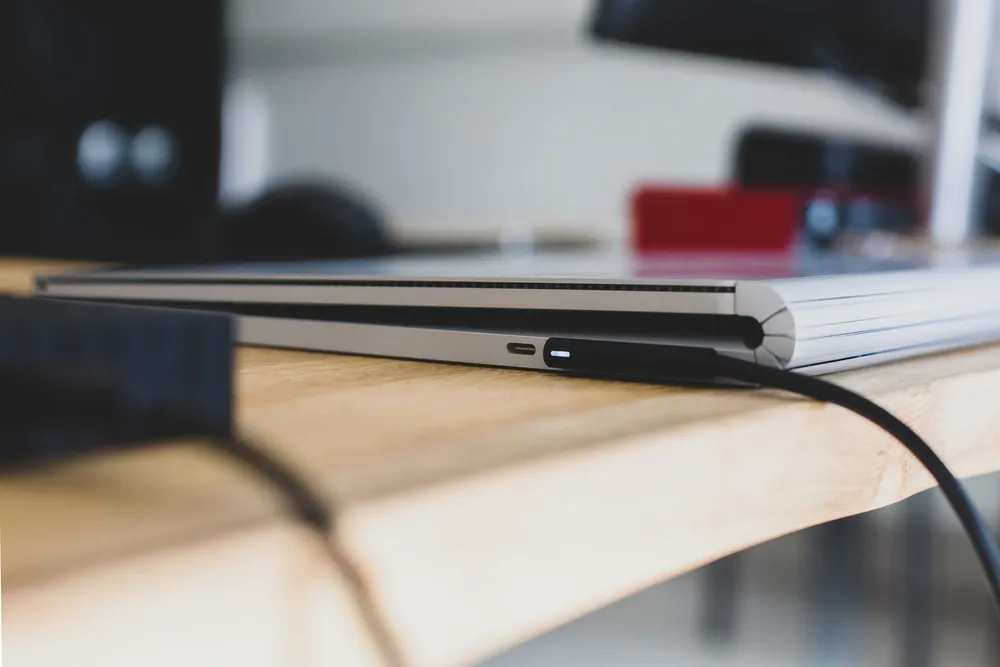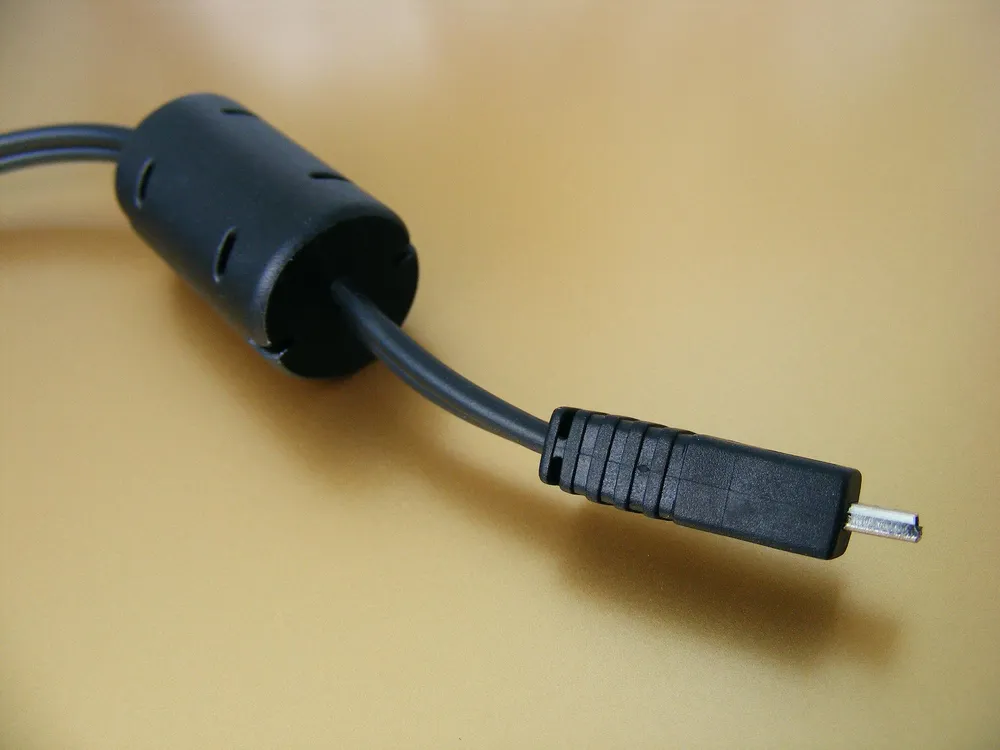You may have heard that it’s bad to leave your laptop plugged in overnight. But is it true or just a myth? This blog post will explore the dangers of leaving your laptop plugged in and answer the question: can I leave my laptop plugged in overnight?
Table of Contents
Quick Answer: Can I Leave My Laptop Plugged In Overnight?
A modern laptop with a Lithium-based battery can be left plugged in overnight without the risk of overcharging or overheating. However, continuously leaving the laptop plugged in may slowly degrade the battery over time and shorten its lifespan. So, if you can, try to unplug your laptop when it’s not in use.
Older laptops with nickel-based batteries should not be left plugged in for long periods, as this can lead to battery damage and overheating.
What Happens When You Leave the Laptop Plugged In?

Every time a battery is charged, there are natural chemical reactions that occur, leading to the degradation of battery cells. The rate at which this happens depends on many factors, like the type of battery, how frequently it’s charged, and how the battery stored.
A so-called charge cycle is completed when a battery is discharged and recharged to 100 percent. Most Lithium-Ion batteries can handle 300 to 500 charge cycles or two to three years of use before they degrade significantly.
But there’s a small chance that leaving your laptop plugged in all the time will shorten its lifespan. It all has to do with how much voltage is flowing into the battery while it’s charging. Even if the battery is fully charged, a small amount of voltage is still flowing into it. That small amount of voltage makes the laptop’s battery work constantly in a process called a trickle charge.
Leaving a laptop plugged in all the time will not ruin your battery immediately. In fact, you can leave a laptop plugged in for months without causing any long-term damage. However, keep in mind that it is never a good idea to completely discharge a battery — doing so can shorten its lifespan.
Dangers of Leaving The Laptop Plugged In Overnight
While it is not harmful to leave your laptop plugged in overnight, there are risks associated with doing so. If the laptop has an older nickel-based battery, there is a chance that the battery could overheat and catch fire. Lithium-ion batteries are much safer, but they can still overheat if left plugged in for an extended period.
Another potential danger of leaving your laptop plugged in overnight is that it could be damaged by a power surge. If there is a sudden spike in electricity, it could damage the laptop’s internal components.
So, while it is technically safe to leave your laptop plugged in overnight, there are some risks involved. If you are concerned about these risks, you can unplug your laptop before going to bed.
How To Correctly Charge Your Laptop’s Battery

No matter what you do, the battery will lose its capacity over time. To get the most out of it, you should avoid letting it discharge all the way to 0%. Doing so can shorten its lifespan. Instead, try to charge it when it reaches about 20%.
It’s also important to unplug your laptop when it’s fully charged. If you leave it plugged in, the battery will stay in a constant state of being almost full, which can also shorten its lifespan.
Lastly, avoid charging it if you notice the temperature is too hot or cold. If it’s too hot, it can damage the battery. If it’s too cold, the battery won’t charge as quickly.
How Does Heat Affect Li-ion Batteries?
Lithium-ion batteries are sensitive to high temperatures. When the temperature is too hot, the battery can degrade faster. Researchers at Nantong University concluded that the ideal operating temperature for a lithium-ion battery is between 68°F and 122°F (20°C and 50°C). Both lower and higher temperatures than that range had a negative effect on how long the battery could hold a charge.
5 Ways To Maximize Battery Performance
Only Charge the Battery When Needed
If you can, avoid charging your battery all the time. Instead, only charge it up when it’s running low on power.
Calibrating the Battery
To get a more accurate estimate of how much power your battery can hold, it’s a good idea to perform what’s called a battery calibration. A calibration means you let the battery run from 100% all the way down to 0%. Then charge it back up to 100% again. This will let the laptop’s power meter get a more accurate reading of the battery’s true capacity.
Keep the Battery Cool
Heat can damage your battery, so try to keep it cool as much as possible. Avoid using it on hot days or in warm rooms.
Use Power Saving Modes
Most laptops have some sort of power-saving mode that can help extend the life of your battery. In Windows, you can find this under the “Power Options” control panel. On a Mac, it’s under System Preferences > Energy Saver.
Avoid Leaving The Battery Uncharged For a Long Time
Batteries can die if they’re left uncharged for too long. If you know you won’t be using your laptop for a while, make sure to charge the battery before putting it away.
With these tips, you can help extend the life of your laptop’s battery, keep the laptop healthy, and avoid having to replace it too soon.
Can Laptop Batteries Explode?
Laptop batteries can explode if they’re damaged or used in extreme temperatures. If you notice your laptop’s battery swelling or leaking, unplug it immediately and contact a professional for help.
How To Remove A Laptop Battery
Removing the laptop’s battery is usually a pretty simple process:
- Make sure to unplug the laptop and turn it off.
- Remove the screws that hold the bottom of the laptop in place and carefully open the bottom of the laptop. Find the release latch or lever and unlock it.
- Slide the battery out of its compartment.
When sliding out the battery, be careful not to damage the wires or connectors.
How Often Should I Calibrate My Laptop Battery?
Most laptop batteries only need to be calibrated every few months. You can check your laptop’s manual for specific instructions on how to calibrate your battery. If you notice that the battery’s power indicator is declining more quickly than usual, it may be time to calibrate the battery.
Conclusion
It is safe to leave your laptop plugged in overnight. However, leaving it plugged in all the time can shorten the battery’s lifespan. If you’re not using your laptop, it’s best to unplug it.
We hope this has answered the question Can I Leave My Laptop Plugged In Overnight.
There are many interesting things you can learn about laptops and their batteries. For example, have you wondered how many watts a laptop charges use? Or perhaps you’re wondering why your laptop battery drains so fast? Here at LaptopBlogger, we’re experts on all things laptops, so feel free to browse our site for more tips and tricks. No matter what questions you have about laptops, we can help you get the answers you need!